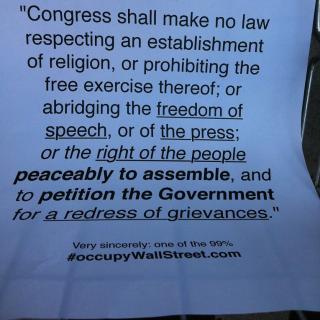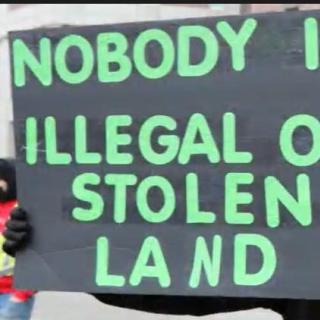The day after inauguration day, on January 21st, over one million people converged on the capitol to make their voices heard at the Women's March on Washington.
I went there to inquire what some of them thought about loving kindness. I suspect that if politically-organized loving kindness is espoused and carried out, activism becomes more immune to infiltration, cooptation, and in-fighting. A social movement based in loving kindness makes it harder for the corporate media and authoritarian politicians to convince the general public we are to be feared, hated and repressed. This article also asks some important questions of our readers.
A marcher holding a sign pronouncing that “Love Trumps Hate,” gave her name as Mallory. I asked her if she thought an ethic of loving kindness is important for effectively organizing social movements, by finding common ground and working out our differences without alienating allies.
“If I really respect you as a person, then I'm going to challenge you to do better,” Mallory said, “So, it's really an act of disrespect to say 'I don't care about this person enough to ask him to check himself.' But we all have to think about where we are. Am I just attacking this person and not wanting them to grow or do I want them to grow? I do want them to grow, so I'm having these conversations. But it does get exhausting for People of Color to always have to explain to the oppressor that this is what's happening and then not being listened to.”
“The other side needs to do some searching of their own and do some self-reflection to be open to the criticism that they're getting and not be so defensive. She said the criticism is not really about that person, but instead about systems of injustice...If we can recognize that it's not personal, then we can move past it. But I think we get caught up in the personal too much.”
A demonstrator named Stephen said there is a lot of misunderstanding between poor whites and poor blacks and poor minorities.
“If all of us were willing to talk more, the world would be a better place. But at the same time, a lot of the people who are oppressed can't have those discussions as much because the people on the political right, historically, can be violent and oppressive. So it's up to all of us, but especially people of privilege (to reach out).”
I asked him to comment on how hate enables the abuse of power by dividing people.
“How do we deal with the fact that poor people everywhere are being oppressed but some demographics are historically oppressed and other demographics are not historically oppressed? For some reasons, poor whites don't seem to understand they're being oppressed and using their oppression to oppress others. They could just as easily unite with the people on the left, the progressives that are here today. But unfortunately some poor whites are glomming on to this idea of white nationalism and American nationalism. It's ignorant and it hurts people and they don't see that.”
I asked him how we can build bonds despite that.
“I think progressives need to go out and talk with Trump supporters. I understand why oppressed people would not want to because it could be dangerous. If anyone is violent, they should probably be jailed, but the people who are nonviolent and just ignorant, we should be talking with them. But at the same time, we should not give an inch on any social justice issues.”



